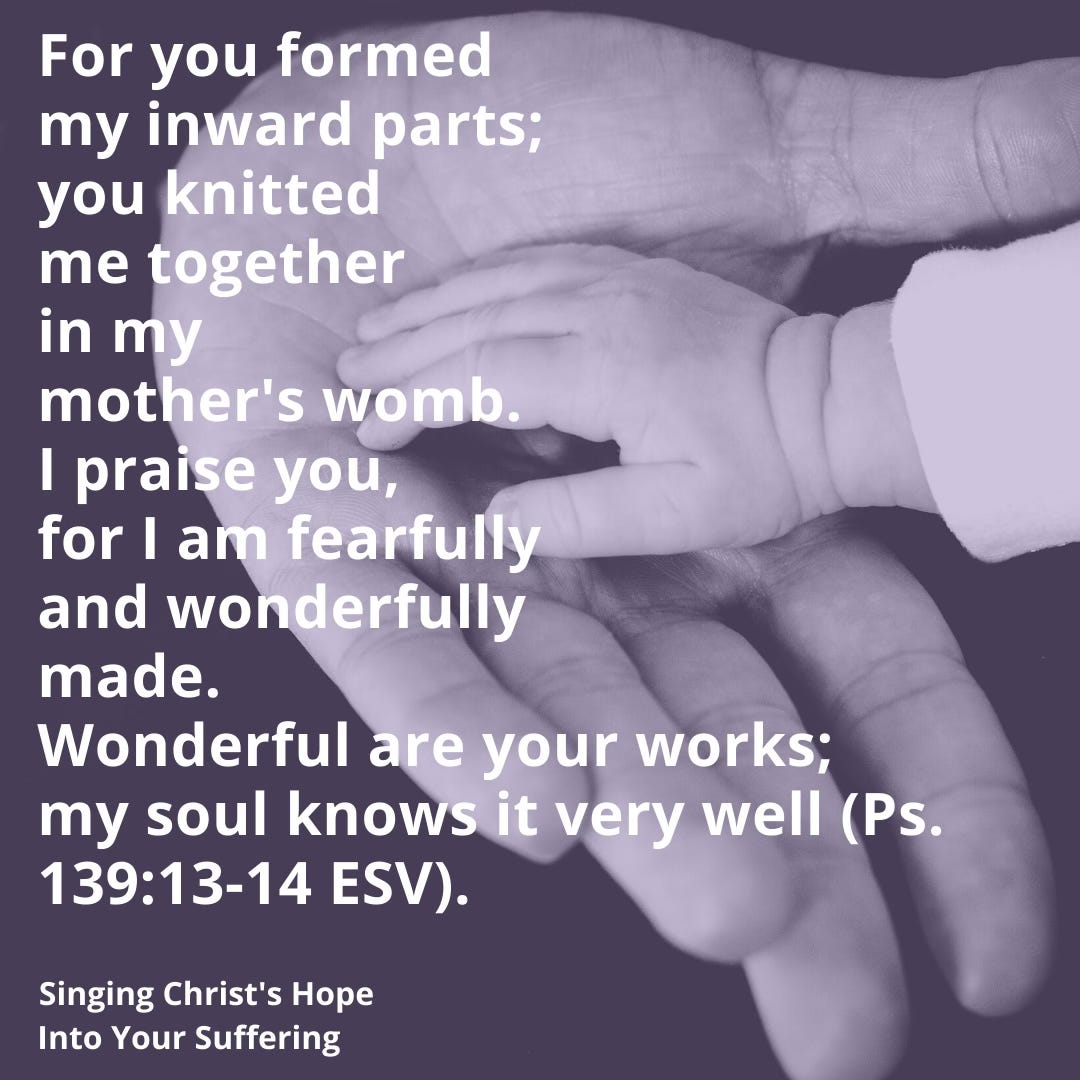Lord God, our Creator,
We come with broken bodies.
Broken world.
Broken breath.
Broken.
It wasn’t Your original design.
Creation: Unbroken Eden, unbroken breath of life
“The Lord God formed the man of dust from the ground and breathed into his nostrils the breath of life, and the man became a living creature” (Gen. 2:7 ESV).
Nothing broken.
No pain.
No illness.
No wounding.
No fears.
No sadness.
No loss.
No sin.
Perfect food.
Perfect ability to move.
Perfect health.
Perfect work and helping.
Perfectly designed.
Perfect love.
Perfect peace.
Whole.
Fall: Broken by sin
My breath is broken.
It responds to sin-full shatterings. The accuser’s lies in my thoughts. The world’s wretched evil abundant. My inborn sin nature splashing onto others.
Come, ye sinners, poor and wretched,
weak and wounded, sick and sore;
Jesus ready stands to save you,
full of pity joined with power:
he is able,
he is willing; doubt no more.
(“Come, Ye Sinners, Poor and Needy,” Hart, J., 1759)
I can barely breathe sometimes. I don’t even realize its shallow, rapid clamoring for air. Am I holding my breath?
It’s making every kind of pain worse. Body, thinking, emotions.
When my illness and pain scream loud, Job’s words can be mine on the inside.
“I loathe my life; I would not live forever. Leave me alone, for my days are a breath” (Job 7:16 ESV).
Yet, You designed me to breathe. You gave me breath. For Your gifted days of my life on earth.
Calm my breath today; calm my body, mind, soul, and spirit. You bid me to come.
Redemption: Breath of new life
Come, ye weary, heavy laden,
bruised and broken by the fall;
if you tarry till you're better,
you will never come at all:
not the righteous—
sinners Jesus came to call.
Creator of heaven and earth, in Your calling me to Jesus as my Redeemer and Lord, You have now powerfully created me as a new creation in Christ. The old has passed away; behold, the new has come! (2 Cor. 5:17 ESV)
Master designer of my body’s intricacies, You who already breathed new life into my dead heart, You who breathes life into dry bones (Ezek. 37:5), You can help me!
You can breathe new life into my “weak, wounded, sick, and sore.”
With the beautiful use of the breathing gift You designed for me.
Restoration: Grace ongoing as I breathe with hope
Come, ye needy, come and welcome,
God's free bounty glorify;
true belief and true repentance,
ev'ry grace that brings you nigh,
without money,
come to Jesus Christ and buy.
“Let everything that has breath, praise the LORD! Praise the LORD!” (Ps. 150:6 ESV).
I come to Jesus now, breathing in Your grace, breathing out my praise as You restore, confirm, strengthen, and establish the whole of who I am as Your new creation in Christ. Please ease my symptoms in and through my breathing to another of Your lovely gifts of grace: music. In Your creating, redeeming, restoring name, Jesus Christ, amen.
TIPS FOR USING THIS PODCAST:
Although singing music aloud is even more powerful, simply breathing in time to music will activate our parasympathetic nervous system, the part of our autonomic nervous system that needs “resetting” when we suffer from chronic illness and pain.
Most people think they should just put ethereal, non-rhythmic music on and hope that it somehow infuses calm. But in chronic pain, illness, anxiety, or depression, our bodies and brains usually need to be more actively engaged as we breathe to its pulse.
Our new podcast will help us do so, taking us from shallow and fast breathing to deeper and slower breathing, easing our pain and anxiety.
Some instructions:
Use headphones, noise-cancelling if possible. Eliminate distraction. Close your eyes. Put your body in a comfortable position, ideally lying flat with knees supported by a pillow.
Put the volume level to as quiet as you can hear it.
Tap on your body in time to the beat, if it’s challenging to focus on the sound.
As you begin to breathe to the music, put one hand on your belly and notice its rise and fall. Fill your belly with air as each Scripture and hymn fills your thoughts.
The beat of the music intentionally offers you musical phrases of inhalations of about 8 beats, a short resting there, and a slow exhale of about 6-8 beats. Ask God to help you breathe in time to the music and “sing” the hymns in your thoughts, using this set-apart time to worship and adore Him.
Practice as He helps reset your autonomic nervous system and heal the beautifully complex body He’s created for us.
I’m joining you! I NEED this! Please email me your feedback, and I will tweak our podcasts accordingly! I had a horrible time with my computer dying, left only with this first draft, but future ones should sound even better (by God’s grace, I purchased a new computer).
What hymns would you like to “sing” in your head as you breathe gratitude and praise to our Lord? Some of you asked me to use these! It’s best to use hymns we love. What are your favorites? Today’s hymns are:
“I Must Tell Jesus”
“Day by Day and With Each Passing Moment”
“‘Tis So Sweet to Trust in Jesus”
“Great is Thy Faithfulness”
DID YOU KNOW?
Using slow, deep breathing as we listen to music? Combining this with songs of praise and gratitude to our Lord? We have a healing gift from Him, built into our bodies and brains!
“Changing your breathing... is one of the quickest ways to change your emotional state. Breathing affects the brain through signals carried by the vagus nerve. It also carries signals up into the brain stem. Vagus nerve signaling is important in activating circuits for resting and relaxation, known as the parasympathetic nervous system. The parasympathetic system is the opposite of the sympathetic nervous system, which controls the fight-or-flight instinct. Slow breathing increases activity in the vagus nerve and pushes the brain toward parasympathetic activity. So slow, deep breathing calms you down. By contrast, rapid breathing deactivates the parasympathetic nervous system and activates the sympathetic nervous system. When you are anxious, excited, or scared, you breathe quickly. But it's also true that if you breathe quickly, you're more likely to feel those feelings. Fast breathing can make you more nervous” (Korb, 2015, pp. 147-148).1
Korb, A. (2015). The upward spiral: Using neuroscience to reverse the course of depression, one small change at a time. New Harbinger Publications.













